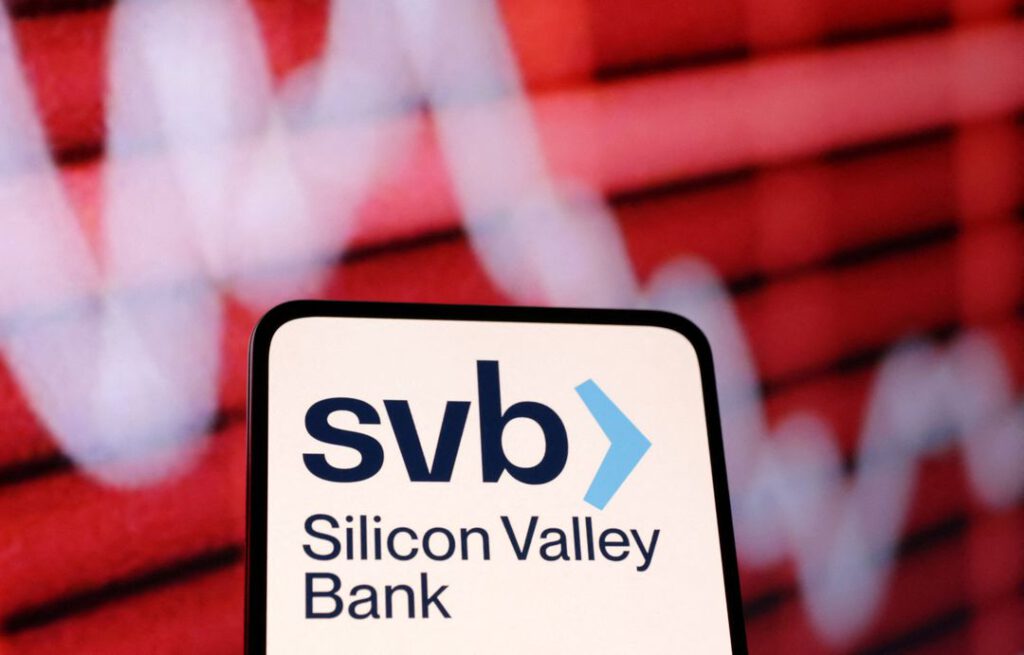Business
Silicon Valley Bank collapses after failing to raise capital
Silicon Valley Bank collapsed Friday morning after a stunning 48 hours in which a bank run and a capital crisis led to the second-largest failure of a financial institution in US history..

California regulators closed down the tech lender and put it under the control of the US Federal Deposit Insurance Corporation. The FDIC is acting as a receiver, which typically means it will liquidate the bank’s assets to pay back its customers, including depositors and creditors.The FDIC, an independent government agency that insures bank deposits and oversees financial institutions, said all insured depositors will have full access to their insured deposits by no later than Monday morning. It said it would pay uninsured depositors an “advance dividend within the next week.”
The bank, previously owned by SVB Financial Group, didn’t respond to CNN’s request for comment.
What happened?
The wheels started to come off on Wednesday, when SVB announced it had sold a bunch of securities at a loss and that it would sell $2.25 billion in new shares to shore up its balance sheet. That triggered a panic among key venture capital firms, who reportedly advised companies to withdraw their money from the bank.
The company’s stock cratered on Thursday, dragging other banks down with it. By Friday morning, SVB’s shares were halted and it had abandoned efforts to quickly raise capital or find a buyer. Several other bank stocks were temporarily halted Friday, including First Republic, PacWest Bancorp, and Signature Bank.
The mid-morning timing of the FDIC’s takeover was noteworthy, as the agency typically waits until the market has closed to intervene.“SVB’s condition deteriorated so quickly that it couldn’t last just five more hours,” wrote Better Markets CEO Dennis M. Kelleher. “That’s because its depositors were withdrawing their money so fast that the bank was insolvent, and an intraday closure was unavoidable due to a classic bank run.”
Silicon Valley Bank’s decline stems partly from the Federal Reserve’s aggressive interest rate hikes over the past year.
When interest rates were near zero, banks loaded up on long-dated, seemingly low-risk Treasuries. But as the Fed raises interest rates to fight inflation, the value of those assets has fallen, leaving banks sitting on unrealized losses.
Higher rates hit tech especially hard, undercutting the value of tech stocks and making it tough to raise funds, Moody’s chief economist Mark Zandi said. That prompted many tech firms to draw down the deposits they held at SVB to fund their operations.
“Higher rates have also lowered the value of their treasury and other securities which SVB needed to pay depositors,” Zandi said. ” All of this set off the run on their deposits that forced the FDIC to takeover SVB.”
Deputy Treasury Secretary Wally Adeyemo on Friday sought to reassure the public about the health of the banking system after the sudden collapse of SVB.“Federal regulators are paying attention to this particular financial institution and when we think about the broader financial system, we’re very confident in the ability and the resilience of the system,” Adeyemo told CNN in an exclusive interview.
The comments come after Treasury Secretary Janet Yellen convened an unscheduled meeting of financial regulators to discuss the implosion of Silicon Valley Bank, a major lender to the hurting tech sector.
“We have the tools that are necessary to [deal with] incidents like what’s happened to Silicon Valley Bank,” Adeyemo said.
Adeyemo said US officials are “learning more information” about the collapse of Silicon Valley Bank. He argued the Dodd-Frank financial reform overhaul, signed into law in 2010, has given regulators the tools they need to address this and improved the capitalization of banks.
Adeyemo declined to predict what, if any, impact there will be to the broader economy or the tech industry.
Echoes of 2008
Despite initial panic on Wall Street over the run on SVB, which caused its shares to crater, analysts said the bank’s collapse is unlikely to set off the kind of domino effect that gripped the banking industry during the financial crisis.
“The system is as well-capitalized and liquid as it has ever been,” Zandi said. “The banks that are now in trouble are much too small to be a meaningful threat to the broader system.”But smaller banks that are disproportionately tied to cash-strapped industries like tech and crypto may be in for a rough ride, according to Ed Moya, senior market analyst at Oanda.
“Everyone on Wall Street knew that the Fed’s rate-hiking campaign would eventually break something, and right now that is taking down small banks,” Moya said.
‘Idiosyncratic situation’
While relatively unknown outside of Silicon Valley, SVB was among the top 20 American commercial banks, with $209 billion in total assets at the end of last year, according to the FDIC.
It’s the largest lender to fail since Washington Mutual collapsed in 2008.
The bank partnered with nearly half of all venture-backed tech and health care companies in the United States, many of which pulled deposits out of the bank.
Mike Mayo, Wells Fargo senior bank analyst, said the crisis at SVB may be “an idiosyncratic situation.”
“This is night and day versus the global financial crisis from 15 years ago,” he told CNN’s Julia Chatterly on Friday. Back then, he said, “banks were taking excessive risks, and people thought everything was fine. Now everyone’s concerned, but underneath the surface the banks are more resilient than they’ve been in a generation.”
Rate hikes take a bite
SVB’s sudden fall mirrored other risky bets that have been exposed in the past year’s market turmoil.
Crypto-focused lender Silvergate said Wednesday it is winding down operations and will liquidate the bank after being financially pummeled by turmoil in digital assets. Signature Bank, another lender, was hit hard by the bank selloff, with shares sinking 30% before being halted for volatility Friday.SVB’s institutional challenges reflect a larger and more widespread systemic issue: The banking industry is sitting on a ton of low-yielding assets that, thanks to the last year of rate increases, are now far underwater — and sinking,” wrote Konrad Alt, co-founder of Klaros Group.
Alt estimated that rate increases have “effectively wiped out approximately 28% of all the capital in the banking industry as of the end of 2022.”
-

 Celebrity Gossip & Gist2 days ago
Celebrity Gossip & Gist2 days ago“When you talk finish, you hug transformer” – Yul Edochie tells Judy Austin’s ex-husband over his allegation
-

 Health2 days ago
Health2 days ago‘Stunning’ – Experts react to new twice-yearly injection that offers 100% protection against HIV/AIDS
-

 News2 days ago
News2 days ago“9ja to the Universe” – Oyinbo people raise eyebrows as they dance to viral ‘Gwo gwo gwo ngwo’ challenge (Video)
-

 News1 day ago
News1 day agoTinubu meets APC governors as nationwide protest against hardship looms (Video)








